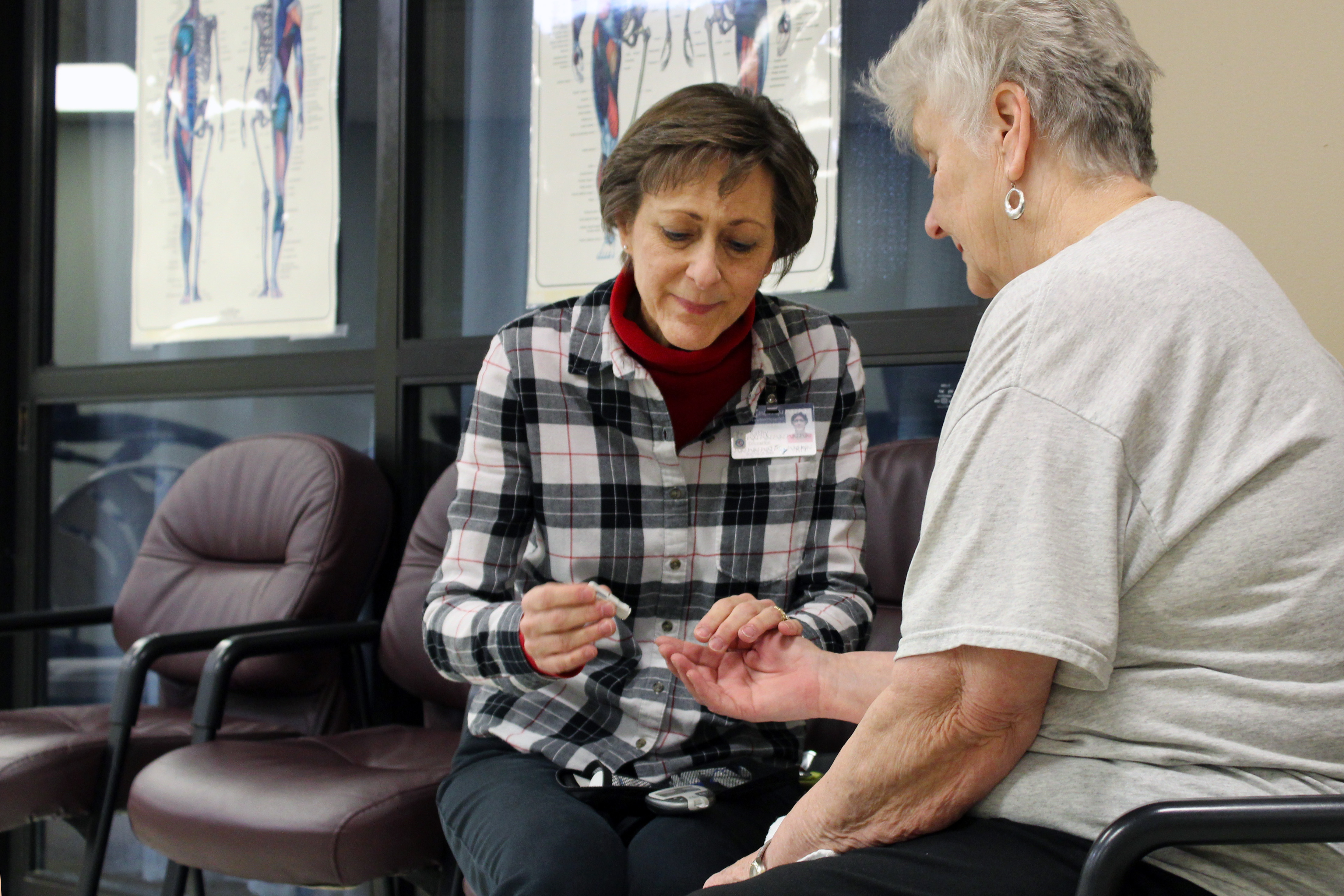Diabetes Education
You have the power to control your disease!
What is Diabetes?
Diabetes is a disease that affects the body's ability to produce or respond to insulin, a hormone that allows blood glucose (blood sugar) to enter the cells of the body and be used for energy.
Diabetes falls into two main categories: type 1, which usually occurs during childhood or adolescence; and, type 2, the most common form of the disease which typically occurs after age 45, although there is an alarming increase in children and young adults with type 2 disease.
Statistics
- Approximately 11% of the U.S. population has diabetes. Unfortunately, about a third of them do not know they have the disease.
- Prevalence of diabetes is at least 2 to 4 times higher among African American, Hispanic/Latino, American Indian and Asian/Pacific Islanders than among Anglo-Americans.
- Gestational diabetes develops in up to 5% of all pregnancies. Women who have had gestational diabetes have a 50% chance of developing type 2 diabetes later in life.
- Women and men with diabetes are nearly eight times as likely to suffer peripheral vascular disease, a disorder resulting in reduced blood flow and oxygen to tissues in feet and legs.
- Women and men with diabetes have a significantly higher risk of cardiovascular disease, amputation, blindness and other health complications.
Risk Factors
- Advancing age
- Being overweight or obese
- Inactive lifestyle
- Belonging to specific ethnic groups (see above)
- High blood pressure (140/90 or above)
- Family history of diabetes
- Having gestational diabetes or having a baby weighing more than nine pounds
Signs and Symptoms
- Increased thirst
- Frequent urination
- Weight changes
- Blurred vision
- Dry, itchy skin
- Vaginal/yeast infections
- Sometimes there are no symptoms of diabetes. If you have risk factors you need to be checked regularly.
Management
Early diagnosis and compliance with medical advice can significantly improve the prognosis for someone with diabetes. Treatment will include diet and exercise. Medication and/or insulin may be necessary depending on several patient-specific factors. Many different types of tools are available to help manage your disease. One way is through the use of technology and smart devices. This article from Verizon, titled Digital Diabetes Management, covers the use of apps, mobile services, and other resources to help make your life with diabetes easier.
Digital Diabetes ManagementPreventive Measures
The risk of having type 2 diabetes can be reduced through lifestyle modifications including weight control, a healthy diet, and regular exercise.
William Newton Hospital Diabetes Education
Personal consultation: Kathy Strom RN/CDE
For more information call 620-221-2300 ext. 1212 or email.
Related William Newton Hospital Services
- Diabetes specialists and family and internal medicine professionals: Health Professionals by Specialty
- Medical Nutrition Therapy: Mary Beth Petrik. For more information call 620-222-6239
- 24-hour emergency room and intensive care services
- Clinical laboratory
- Wound care and other rehabilitation services

